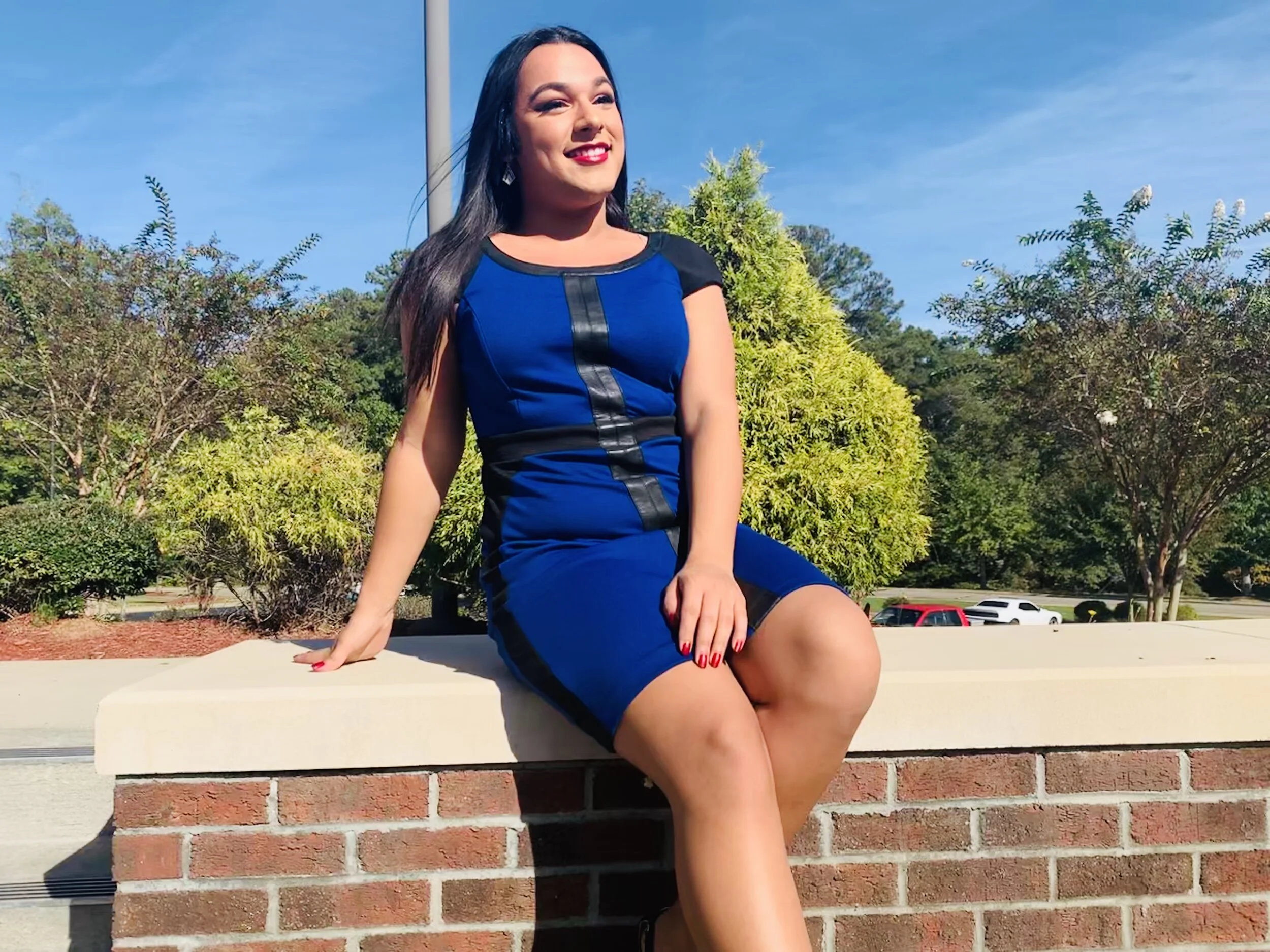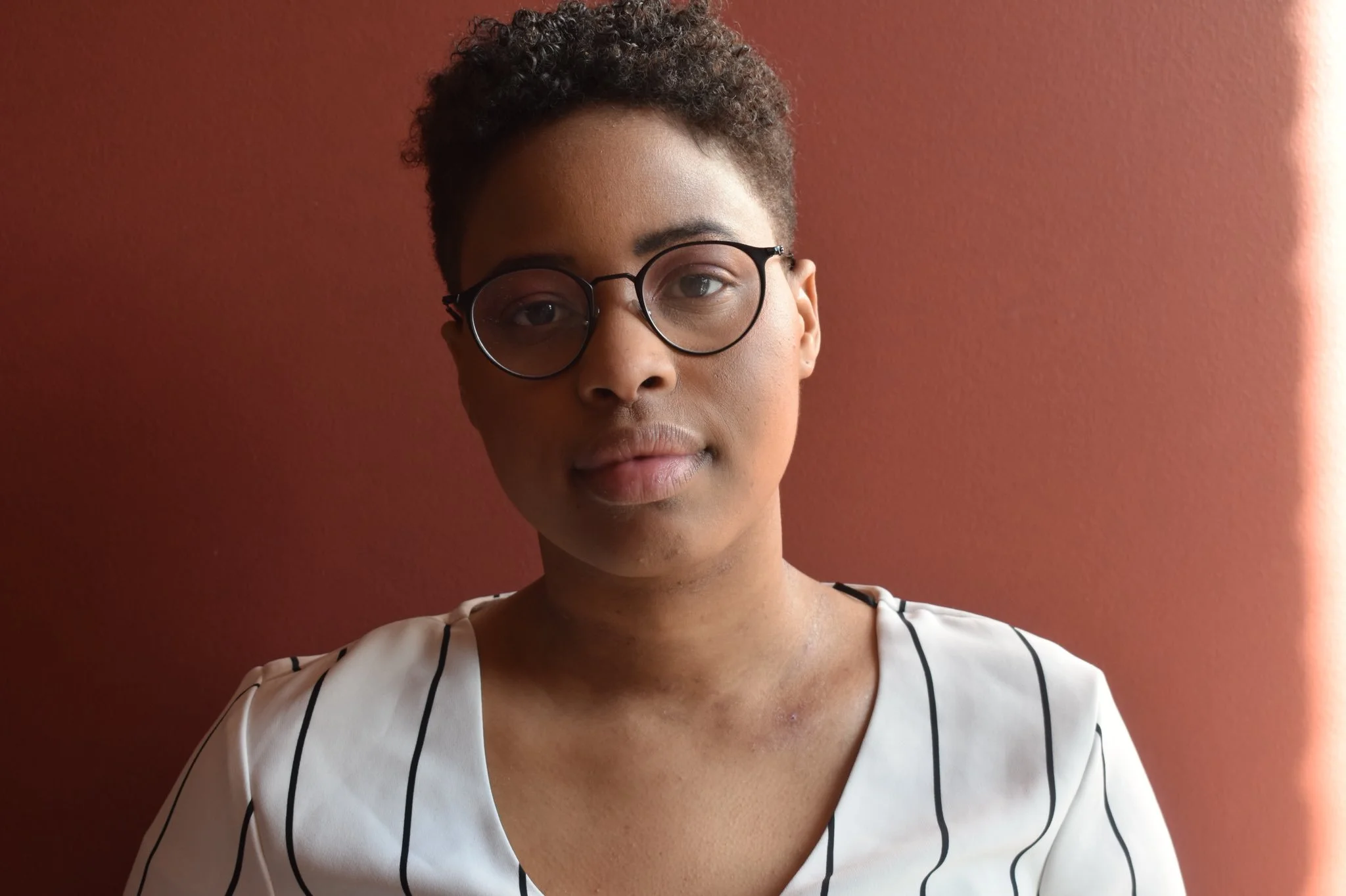Sydney Stephens (she/her/hers) wants LGBTQ+ students at HBCUs to know their lives, their politics, their activism, and their humanity matters.
Read MoreMichaela Moore (she/her/hers) is a leading a LGBTQ+ student movement at Fayetteville State University to ensure all colors of the spectrum are represented and included at the historically Black university.
Read MoreQuartice Robinson (she/her/hers) is happy to find queer community and family at Fayetteville State University.
Read MoreJasmine J. Moye’s interview is a part of ‘Voices in Movement’ February 2020 theme, #MakingBlackQueerHisory: Black LGBTQ+ Women and Non-Binary Student Activism at HBCUs. To read the descriptor, please click here.
Read MoreAlexis D. Henninger (who uses all pronouns) believes all HBCUs should explicitly be committed in creating safe and inclusive campuses for LGBTQ+ students.
Read MoreAs the president of Bowie State University’s student organization, the Gay-Straight Alliance, Zenobia Fenrick (she/her/hers) is working to build a formidable Black queer consciousness and movement on campus.
Read MoreQueer activist, organizer, and movement journalist, Clarissa Brooks (she/her/hers) is here to remind HBCUs and students alike that respectability politics, symbolic representation, and the limiting narrative of ‘Black Excellence’ will not save us.
Read MoreGenderqueer activist, organizer, and environmentalist Eva Dickerson (they/theirs/she/hers) wants more than just LGBTQ+ representation at HBCUs––they want gender equity and gender justice
Read MoreJasmine Cameron (she/her/hers) shares her perspectives and experiences of being a lesbian student-activist at an HBCU.
Read MoreDestiny Harris (who uses all pronouns) is tired of the erasure of queer students, organizing, and leadership at HBCUs.
Read MoreA pioneering activist and advocate, Tamika Spellman (she/her/hers) is leading a movement so that present and future Black and Brown sex workers in Washington, D.C., can truly know what full freedom and Belonging is and means in a world that tries to criminalize and control their bodily and political autonomy and agency.
Read MoreFor Keri Gray (she/her/hers), loving her Black disabled womanhood is not just a radical declaration to the world––it is radical reclamation of self.
Read MoreBlack women have led the call for reparations since emancipation, but what are politicians, scholars, and activists saying about it today? By holding up the present moment against movement leaders of the past, it became clear to me, among other things, that politically-neutered personal appeals to non-Black, non-enslaved African descended audiences aren’t what we need.
Read MoreA community organizer, leukemia warrior, and poet, Walela Nehanda (they/them/theirs) is for the liberation of their people. And in the movement to free Black people, Nehanda has proven time and time again they will always rise to the occasion.
Read MoreAnayah Sangodele-Ayoka (she/her/hers) was almost kicked out of a community clinic for breastfeeding her newborn baby. After such an unbelievable experience, Sangodele-Ayoka turned her anger into action by co-founding Black Breastfeeding Week and standing in the gap for Black people who breast and chest feed.
Read MoreMeet Alexis Grady: The Queer Non-Binary Student-Activist Who Is On A Mission To Ensure LGBTQ+ Student Representation At Howard University.
Read MoreAfro-Brazilian LGBT women activists are revolutionizing politics in Salvador, Bahia, Brazil. You need to know their names.
Read MoreIvorian-American women’s rights activist Stephanie Kimou (she/her/hers) was tired of African women being overlooked in the historical and contemporary white spaces of domination in the international development sector. So, she decided to do something about it.
Read MoreAs a Black queer theatre artist, writer, singer, and community organizer, Nyla Sampson (she/her/hers), is using her many talents to advocate for race, gender, food justice, Black visibility in theatre and beyond.
Read More


















